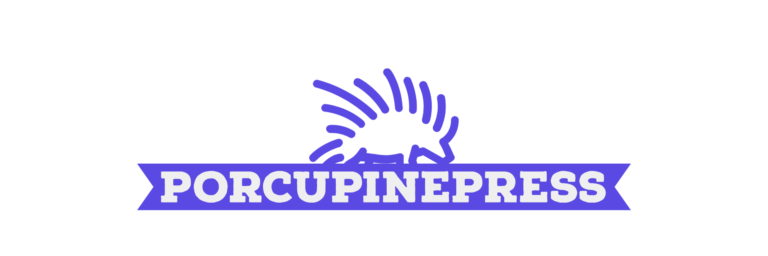A well-defined strategy is necessary for a career transition, be it a layoff, position change, or industry transfer. You need to apply the knowledge you have gained from adapting to modifications in your profession on several occasions to your upcoming transfer. Changing your work may be both an exciting and stressful moment in your life. You may utilize all of the information and expertise you have accumulated over the past ten years by changing careers at the age of thirty. You possess maturity, transferable talents, and a clear idea of your professional goals, so your career change ideas are valid. Furthermore, the present technological development rate and labor market changes make it an ideal time for people who want to change course.
However, why do so many individuals put off changing occupations at this point? Maybe because they are afraid of starting over. Nevertheless, changing occupations at 30 doesn’t need to mean beginning over; rather, it calls for starting more strategically. Many individuals in their 30s use their expertise to help them make better decisions regarding their future job path. This article will serve as a guide to tips for making a career change at 30.

Discovering What Truly Interests You
A crucial first step in changing your job is figuring out what interests you. Even though it might not be straightforward, this is an essential first step toward self-discovery, professional success, and personal satisfaction. You may find out what you truly want to accomplish by taking several scientifically proven exams. Knowing your hobbies can help you discover a job you love and will also help you make smarter professional decisions. Your productivity will increase when you are enjoying your task. This may inspire you to put in more effort and advance your abilities.
Researching Career Paths That Fit Your Goals
After that, start looking at professions that fit your objectives. Making a list of your ideal job requirements might be useful for rapidly comparing different career routes to your desired results. Obtain extensive knowledge regarding new jobs, like average compensation, expected job growth, usual educational background, and so forth, by searching different sites. Pick two or three job profiles that appear to fit your interests and passions. Choose only those kinds of jobs that you think might help you achieve the lifestyle you want. It is better to take a good amount of time choosing the occupational field you want to work in rather than hastily getting into something that you might go on to regret later on.
Making a Practical Transition Plan
Contemplate the factors that might affect your growth or restrict your job profile when you are starting to look for jobs again. Think about how much of a raise you will get in that field and if it will be enough for your lifestyle while taking inflation into account. Make a detailed strategy for your transition that emphasizes attainable goals. Accomplishment creates traction, whether it’s earning project experience, finishing a qualification, or securing informative interviews.
Upskilling to Bridge the Gap
The next step after you have successfully assessed your interests and narrowed your career paths is to upskill your profile. If there is some gap between the career path you would like to choose and the skills that are required to pursue that career path, then your only way is to bridge that gap. Once you have made up your mind regarding the job profile you are going to choose, you should prepare yourself to work on your skills. Any skills that you might not possess might be remedied by certification courses, a diploma, or any other skill-based programs. Due to platforms like Udemy, Coursera, edX, Skillshare, Udacity, and Khan Academy, which offer an array of courses with flexible time frames, it is easy to upskill yourself. These affordable platforms often offer courses that target your specific niche, so you don’t have to worry about the logistics of having to upskill yourself.
Balancing Hard and Soft Skills
When it comes to skilling yourself, you should remember that both hard and soft skills are significant for a well-rounded profile. For example, if you wish to switch to a profile of a remote content writer, you need to know about SEO as well as analytical skills. Without having analytical skills, you cannot write in-depth content that might engage the audience you are writing for. Similarly, soft skills such as time management, discipline, and motivation are equally important for remote work success.
You can attempt to create a learning plan that suits you and spend somewhere around six to twelve hours a week to progress your learning. Within months, you will be proficient in the skillset if you are dedicated to it. You can try to apply your skills in real-life situations to assess your capabilities, and this will also help you gain experience that you can add to your resume to stand out.
Taking Consistent, Strategic Action
Taking persistent, well-informed action is the ultimate and most crucial stage in successfully changing careers at thirty. Applying for employment, contacting people working in your chosen field, editing your resume to meet remote job requirements, and getting ready for virtual interviews are all necessary steps after analysis and preparation.
Start by enhancing your LinkedIn profile and customizing your CV to emphasize talents that apply to remote work and transferable skills. Don’t undervalue the importance of networking; connect with people who have had similar transformations, attend virtual events, and join online forums tailored to your field.
Trust the Process and Keep Going
It is alright if you fail to secure your ideal remote job right away. You get closer with every application, interview, and freelancing opportunity. Remain flexible, never stop learning, and don’t let failure overwhelm you. Although career transitions are rarely straightforward, they may be incredibly fulfilling if handled with perseverance and purpose.
Making a job change at age 30 is an effort toward coordinating your employment with your future goals and aspirations. A rewarding profession can result in enhanced mental health, growth as an individual, and increased fulfillment.
The first step is usually the toughest, even when the journey may seem daunting. Take small, doable measures, embrace determination above perfectionism, and have faith that your efforts will give you the self-assurance you need to succeed. If you believe in yourself and take the initial step, you can achieve your ideal career.










